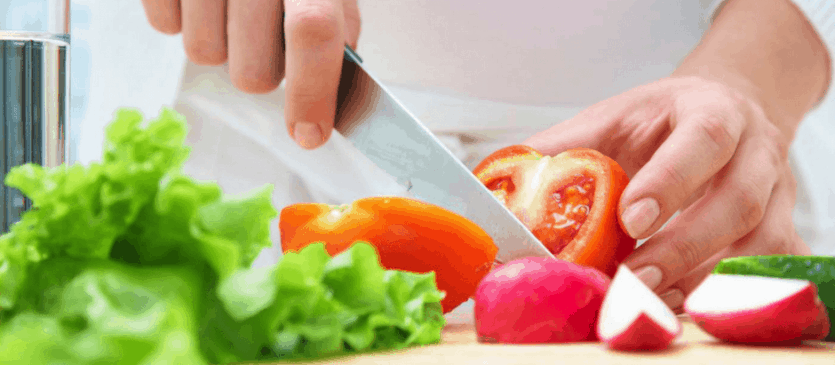Do you cook and bring food to an elderly relative or friend in an aged care facility?
It’s really nice to show you care by cooking special favourite meals for the resident of an aged care facility — perhaps culturally specific food or a family favourite which is not normally available in that facility.
But if you do, you really wouldn’t want to make them sick, so there are some things you need to know.
Our immune systems get weaker as we get older. Also, our stomachs produce less acid which makes it easier for harmful germs to get through the digestive system and invade our bodies.
If elderly people do get food poisoning, they are also likely to suffer more severe consequences. These can range from mild dehydration to neuromuscular dysfunction or even death. Older people also take longer than most of us to recover from food poisoning.
There are some foods that pose a higher risk than others, particularly of passing on a Listeria infection which is dangerous for the elderly.
What are the higher risk foods?
- Cold meats Cooked or uncooked, packaged or unpackaged e.g. roast beef, ham etc.
- Cold cooked chicken Purchased whole, portions, sliced or diced Pate Refrigerated pate, liverwurst or meat spreads
- Salads Pre-prepared or pre-packaged fruit, vegetables or salads e.g. from salad bars, retail outlets etc.
- Chilled seafood Raw or smoked ready-to-eat e.g. oysters, sashimi or sushi, smoked salmon or trout, sandwich fillings, precooked peeled prawns such as in prawn cocktails and salads
- Cheese Pre-packaged and delicatessen soft, semi-soft and surface ripened cheeses e.g. brie, camembert, ricotta, feta and blue
- Ice cream Soft serve
- Foods made with raw egg such as home-made egg mayonnaise, hollandaise sauce, uncooked cakes and desserts and egg-nog can also be dangerous for the elderly.
You should not provide these foods to an elderly resident
The elderly person may also have special dietary requirements or restrictions of which you are unaware. Please check with the staff before providing food to an elderly resident.
If you plan to take chilled or frozen food you have cooked yourself, make sure that the food is cooled quickly in your refrigerator; never at room temperature.
Always wash your hands well under running water using soap and dry thoroughly before handling food.
- Put cold food into a cooler with ice packs when travelling to visit your relative or friend.
- Don’ t pack food if it has just been cooked and is still warm. Coolers cannot cool food they can only keep cold food cool.
- Always cover pre-prepared foods securely and prechill them, for example, keep in the refrigerator overnight.
- Other perishable foods and drinks, such as deli products, cooked chicken and dairy products must also be cold when put in the cooler.
- Hot food is difficult to keep hot and is best avoided if you are travelling long distances. It is best to chill the food overnight and reheat it at the residence.
- If any perishable food you bring is not eaten immediately, make sure it is refrigerated before you leave.
Make sure that staff know that you have brought in food and ask them how to go about re-heating it.
Make sure you tell the staff if the elderly person has some perishable food in their room.
Remember:
When you bring food into an aged care facility for a relative or friend it is you and not the staff who is responsible for its safety


